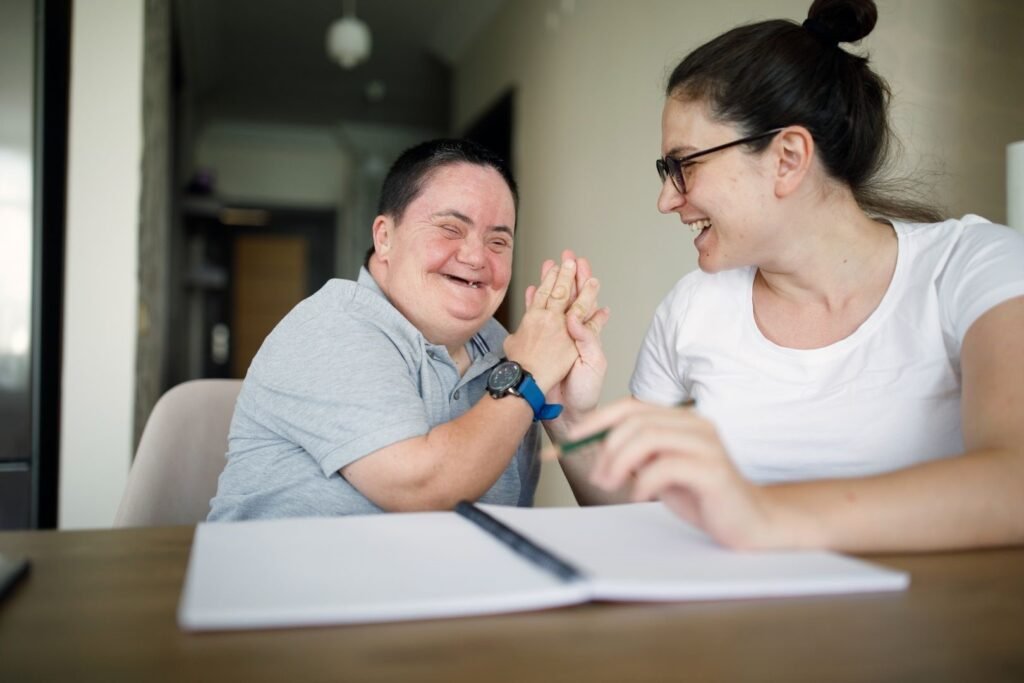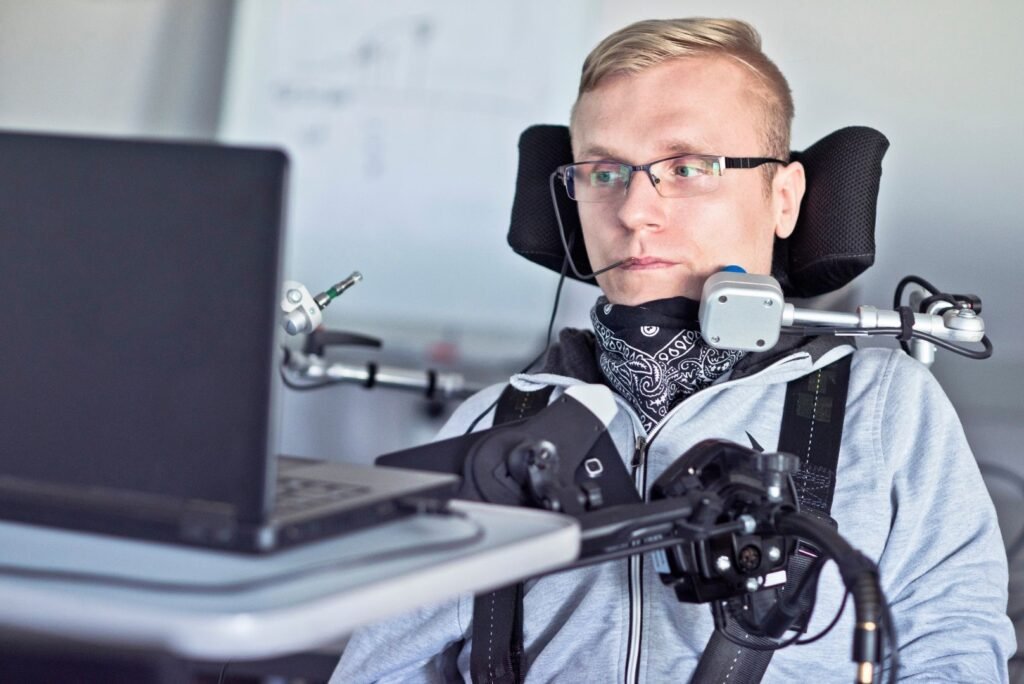Understanding different types of disabilities is essential for fostering an inclusive and supportive community. By recognising the unique challenges faced by individuals, we can better appreciate the vital role of Melbourne disability support services. This guide aims to educate and inform, providing a comprehensive overview of the various types of disabilities and their impact on daily life.
Physical Disabilities
Physical disabilities affect a person’s mobility and physical functioning. They can result from congenital conditions, injuries, or illnesses.
Examples:
- Cerebral palsy: A group of disorders affecting movement, muscle tone, and posture.
- Spinal cord injuries: Damage to any part of the spinal cord or nerves at the end of the spinal canal.
- Muscular dystrophy: A group of genetic diseases causing progressive weakness and loss of muscle mass.
Challenges:
- Mobility issues: Difficulty in moving around, which may require the use of wheelchairs or other mobility aids.
- Need for assistive devices: Equipment like crutches, walkers, and prosthetic limbs can enhance independence.
- Accessibility barriers: Ensuring environments are accessible, including ramps, lifts, and adapted vehicles.
Sensory Disabilities
Sensory disabilities impact one or more of the senses, such as sight or hearing. These disabilities can significantly affect communication and interaction with the environment.
Examples:
- Visual impairments: Ranging from partial vision loss to complete blindness.
- Hearing impairments: Including mild to profound hearing loss or deafness.
Challenges:
- Communication barriers: Difficulty in receiving and conveying information, often requiring sign language or braille.
- Navigation and orientation difficulties: Challenges in moving around unfamiliar environments, which can be mitigated by guide dogs or electronic aids.
- Need for assistive technology: Devices like hearing aids, cochlear implants, and screen readers enhance accessibility.
Intellectual Disabilities
Intellectual disabilities affect cognitive functioning and learning abilities. They are usually identified during childhood and can impact various aspects of daily life.
Examples:
- Down syndrome: A genetic disorder causing developmental and intellectual delays.
- Fragile X syndrome: A genetic condition causing intellectual disability, behavioural, and learning challenges.
Challenges:
- Learning difficulties: Require tailored educational programs to address specific needs.
- Need for specialised education programs: Individualised teaching strategies and support services.
- Social integration issues: Difficulty in social interactions and forming relationships, which may necessitate social skills training.
Developmental Disabilities
Developmental disabilities affect physical, learning, language, or behaviour areas. Early diagnosis and intervention are crucial for managing these conditions.
Examples:
- Autism spectrum disorder (ASD): A range of conditions characterised by challenges with social skills, repetitive behaviours, and communication.
- Attention deficit hyperactivity disorder (ADHD): A condition marked by persistent inattention, hyperactivity, and impulsiveness.
Challenges:
- Behavioural and communication difficulties: Require behaviour management strategies and speech therapy.
- Need for early intervention and continuous support: Early therapy and consistent support services are vital for development.
- Education and training: Tailored educational programs and vocational training are necessary for skill development.
Mental Health Disabilities
Mental health disabilities affect emotional and psychological well-being. They can be challenging to manage due to stigma and limited access to appropriate care.
Examples:
- Depression: A mood disorder causing persistent sadness and loss of interest.
- Anxiety disorders: Conditions characterised by excessive fear or worry.
- Schizophrenia: A severe mental disorder affecting thought processes, emotions, and behaviour.
Challenges:
- Stigma and discrimination: Often lead to social isolation and reluctance to seek help.
- Access to mental health care: Limited availability of services and support can hinder recovery.
- Managing symptoms and treatment: Requires ongoing therapy, medication, and support networks.
Multiple Disabilities
Some individuals have more than one type of disability, which can complicate care and support needs. This category requires a coordinated approach to address the diverse challenges.
Examples:
Co-occurring physical and intellectual disabilities: Such as cerebral palsy combined with intellectual disability.
Challenges:
- Complex care needs: Requires comprehensive and multifaceted support plans.
- Coordinating multiple support services: Involves various healthcare providers, therapists, and support workers.
Conclusion
Understanding different types of disabilities helps promote inclusivity and support within the community. Melbourne disability support services play a crucial role in providing the necessary assistance and resources. By learning about the challenges faced by individuals with disabilities, you can contribute to a more supportive and inclusive society.
If you or a loved one needs support, don’t hesitate to reach out to Sympa Care. We offer comprehensive Melbourne disability support services tailored to your needs. Contact us today to learn how we can help enhance your quality of life and provide the support you deserve.





